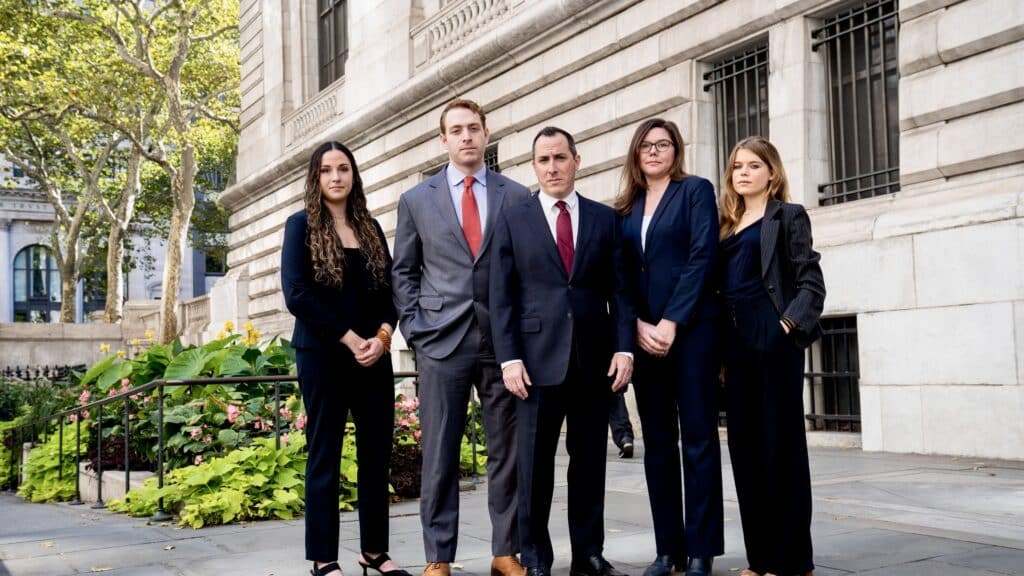A criminal appeal is a request for a higher court to review the details of your trial and determine if mistakes were made that may have prejudiced the outcome. A successful appeal requires a skilled, savvy attorney who is familiar with appellate law and procedure.
Mr. Forman practices exclusively in State and Federal criminal appeals, petitions for rehearing and habeas corpus cases. He personally handles each appeal.
Defendants have a right to appeal
In the state of New York, defendants have a right to appeal if they were found guilty of a crime and sentenced by a lower court. An appellate court will review the case to see if any legal errors occurred. These errors may be enough to overturn the conviction and order a retrial. However, a judge must first find that the error was not “harmless.” This means that it did not affect the outcome of the trial in a significant way.
A criminal defense attorney will research all the relevant evidence and information to determine what errors might have happened at the trial level. This will help them write a document called an appellate brief, which will be reviewed by a judge at the Appellate Division. There are specific deadlines and requirements for pleadings in an appeal, so it is important to hire an attorney with experience in this area of law.
Some types of errors that can be argued on an appeal include those made by the prosecutor or the defense attorney. Additionally, there are certain rules that apply to the selection of a jury during a trial. For example, the state and defense can use “peremptory challenges” to remove potential jurors who might be biased against them.
Defendants have a right to a speedy trial
The 6th Amendment to the United States Constitution states, in part: “In all criminal prosecutions, the accused shall enjoy the right to a speedy and public trial, by an impartial jury of the state and district wherein the crime was committed.” Many states have passed laws (statutes) clarifying how courts should apply this constitutional principle. There is no firm time limit that courts must adhere to, but the statutes generally say that the prosecutor has 60-180 days from arraignment on an indictment or other formal accusation to get the case to trial. The defendant may choose to waive his or her right to a speedy trial, in which case the court must decide whether there is good cause for delay and determine what constitutes a reasonable timeframe.
A skilled attorney can help you argue that your rights were violated during the original trial by demonstrating that there was a problem, mistake or legal error in the previous proceedings. This could include anything from incorrect jury instructions to a mishandled argument by your lawyer.
When a judge issues a ruling that violates your rights, you have the right to appeal. The skilled criminal appeal lawyer at Wallin & Klarich can help you file your notice of appeal and guide you through the process.
Defendants have a right to a fair trial
A defendant’s right to a fair trial is a fundamental principle of our legal system. It guarantees that the accused person will have a public hearing within a reasonable time and before an impartial tribunal. This right applies to both criminal and civil cases. It also requires that the accused be allowed to defend themselves against the charges.
An experienced criminal appeal lawyer will thoroughly review the case transcripts and other evidence in order to identify any errors that occurred during the trial. The attorney will then prepare a detailed document called an appellate brief and submit it to the Appellate Court. This is an intense and lengthy process. It is important that the appellate attorney has a deep understanding of the laws of New York and the procedures of the Appellate courts. It is also essential that the attorney has the skills to deliver oral argument before a panel of judges. Emotional arguments that may have played well in front of a jury will not carry the same weight before an appellate court.
In addition to examining the evidence, the criminal appeals attorney will also examine whether the trial court properly followed the law. For example, a confession must be knowingly and voluntarily made in order to be admissible in court. If a defense attorney can prove that the prosecutor committed misconduct during the trial, the conviction could be overturned.

